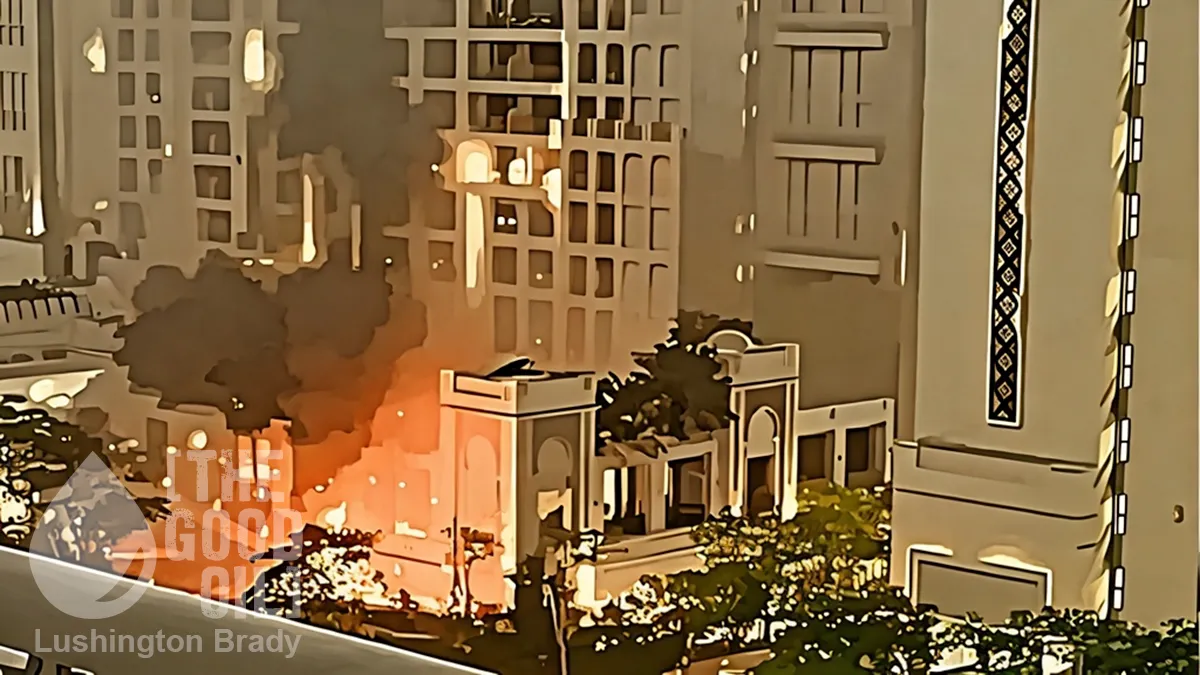Table of Contents
Western countries invest heavily in their military; as such, significant issues should be addressed both openly and seriously.
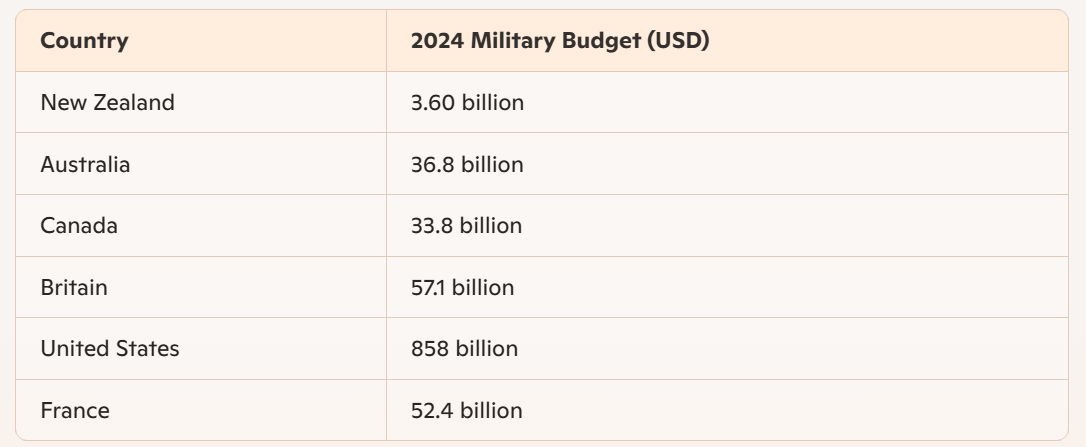
The loss of a $100 million NZD naval vessel is significant but it’s disheartening that the focus immediately shifted to the commander’s gender and sexual preferences, sparking allegations of misogyny. This however overshadows the broader issue.
· The Manawanui disaster, although only 2.8 per cent of the NZ Defence Force’s budget, highlights deeper concerns about the effectiveness of ‘Diversity, Equity, and Inclusion’ (DEI) initiatives in the military.
The focus must return to systemic issues such as why recruitment numbers are falling and why readiness and capability are worsening. Military recruitment in Western countries is critically underperforming, yet this deficit goes relatively unremarked on in the public discourse. The underperformance averages over 20 per cent – which is unacceptable.
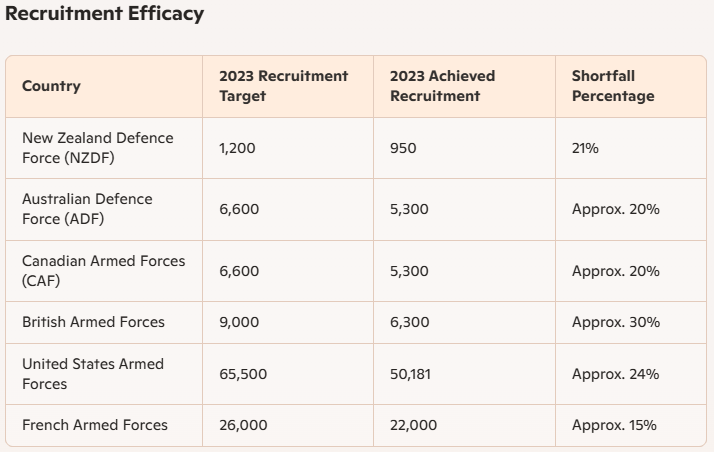
New Zealand, Australia, Canada, Britain, the United States and France all maintain militaries to protect their national interests, ensure territorial integrity and support global stability. These armed forces serve as a deterrent against potential threats, contribute to international peacekeeping efforts and provide humanitarian aid in times of crises. In an increasingly interconnected world, a strong military presence enables these nations to collaborate with allies, respond swiftly to emerging security challenges and uphold their commitments to global security and defence alliances. These are important functions, and they involve huge budgets and hundreds of thousands of jobs.
· If any other sectors of the economy were so badly underperforming, it would be a matter of national discussion.
Of course there have been some discussions, mostly behind closed doors, and recruitment programs were organised to address the perceived issues. As examples:
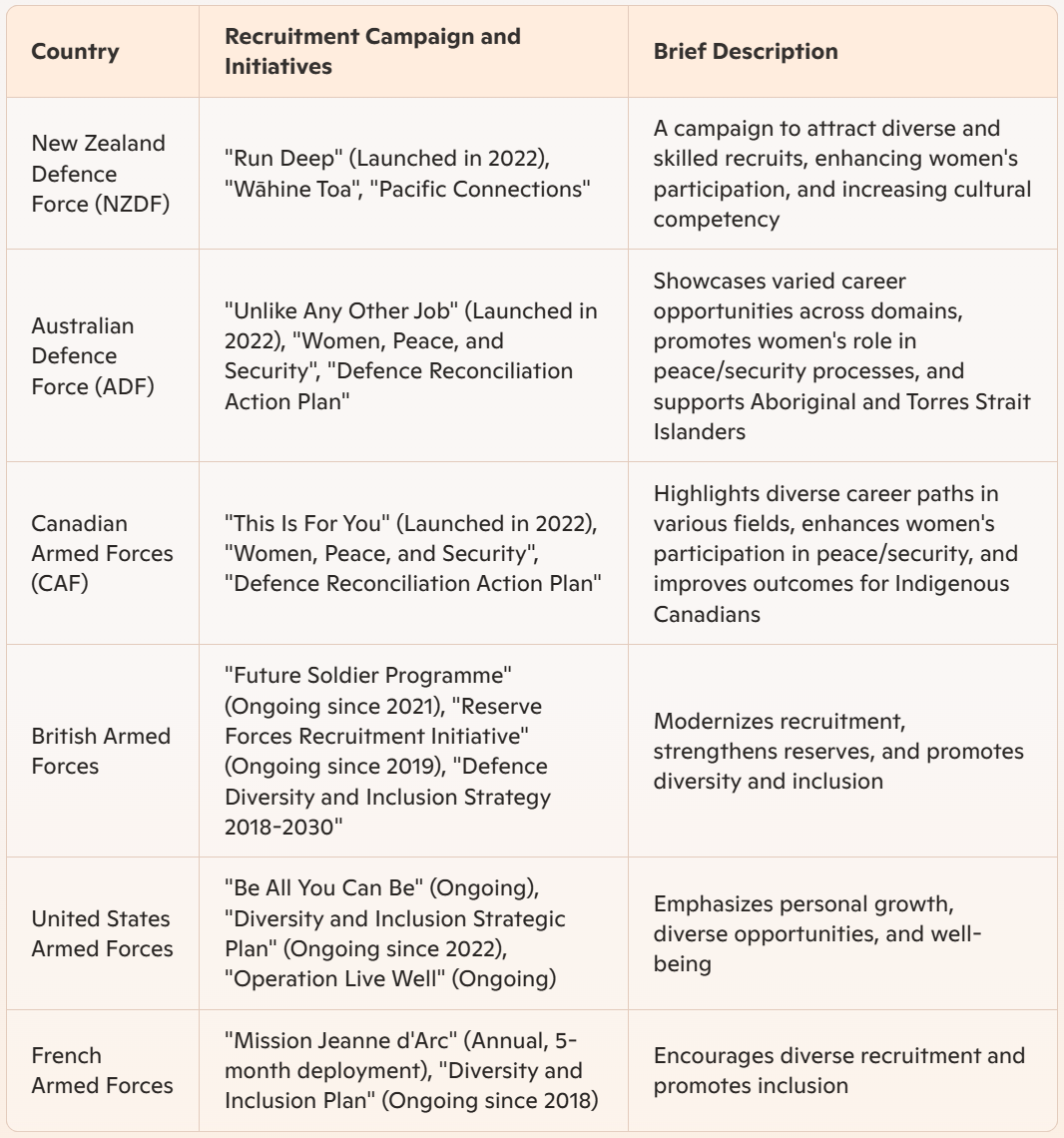
It is not hard to see a common thematic regarding these recruitment programs – they all focus on DEI – although that is not the only commonality:
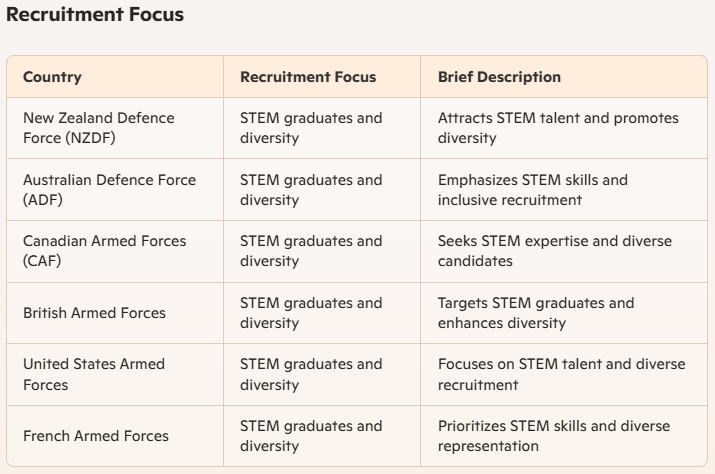
In 1891 the Narcotics Anonymous Basic Text was published, compiling the experiences of thousands of recovered addicts. It introduced the phrase often attributed to Einstein:
“Insanity is repeating the same mistakes and expecting different results.”
Today, the idea of DEI is so idealised, almost with religious zeal, that many overlook the fact these programmes aren’t delivering the desired results.
· Most DEI programmes are almost impossible to benchmark and for many the outcomes are entirely subjective.
In these military cases, despite multiple DEI-focused recruitment programmes and behind-closed-doors discussions, they are failing and wasting taxpayers’ money, lowering public confidence and producing substandard results. Yet, we persist with the same ineffective approaches.
· Considering the shortfalls in recruitment we can’t afford to be turning down the willing and able based on prejudices.
Yet we keep putting our money on the DEI horse again and again. When will our military leaders recognise or admit that there is a time and place for ideological dispositions and the military is not one of these places?
· DEI, unless it means ‘Discipline, Efficiency and Integrity’, is a shoehorn fit for our military and it’s not working.
Aside from the obvious issues of standards being lowered, which is predictable, people have also been ‘turned away’ or ‘turned off’ from the military due to these policies.
In the case of ‘turned off’ – why join a military in which advancement based on merit is frustrated? A systematic bias based on race, gender or sexual inclinations exists and may in fact be mandated by HR. When trying to promote teamwork and unity, as is critical in the armed forces, one would think these inalienable characteristics are the very last things one would want to highlight, i.e., exacerbating the differences between us.
To illustrate ‘turned away’ we have the 2023 case of how the British Royal Air Force (RAF), under pressure to meet diversity targets, turned away what the recruiters labelled “useless white-male pilots” (despite them being more suitable) to hit these targets, allowing less-qualified women and ethnic minority candidates a preferential path to recruitment.
· Is NZ orchestrating similar undesirable outcomes?
This is reflected in the current self-assessments of our military:
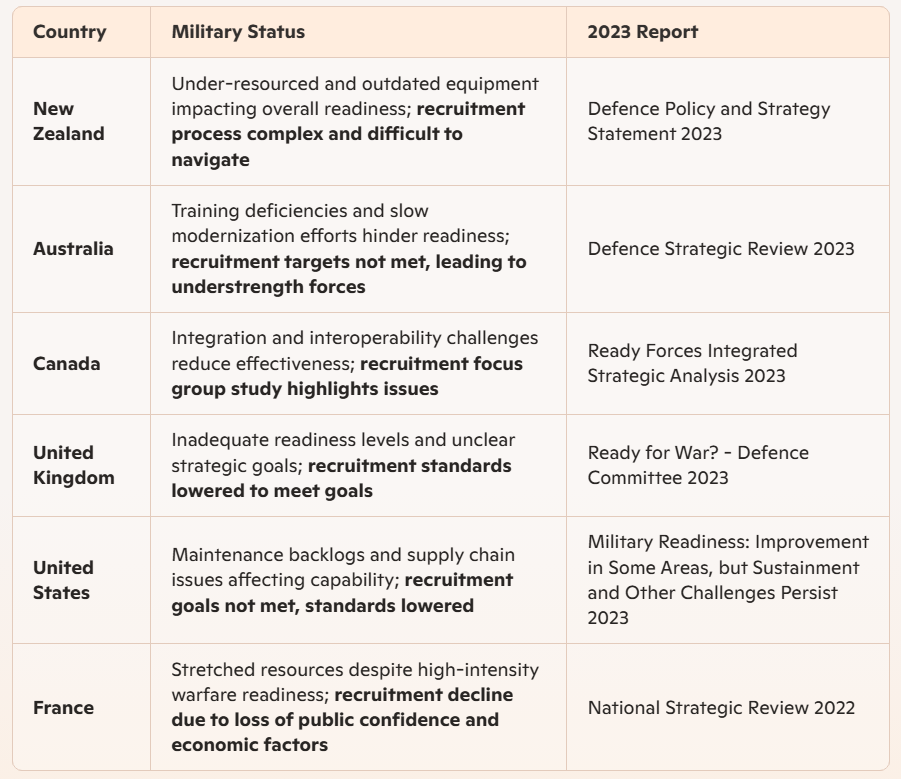
· In the West, we are quickly approaching a situation where our military is ‘unfit for purpose’ and the fascination with DEI will not fix that.
This underscores the existential threat from opponents who view DEI efforts in our military as signs of weakness and distraction. Events like the invasions of Ukraine and Israel demonstrate that they feel emboldened to test our strength. They see these initiatives as confused, wasteful, harmful to morale and toxic to military readiness – ultimately to their advantage.
Beyond the military, they perceive similar moral and structural weaknesses across our support systems – whether social, industrial or otherwise. Many organisations worldwide, including thousands in New Zealand, need to curb the ideological excesses of DEI. A broad-church of local examples include:
- Police Force (e.g., unconscious bias training)
- Rotary (e.g., subversion of the “Four Pillars”)
- Department of Conservation (multiple programmes)
- Reserve Bank of New Zealand (DEI Centre of Excellence)
These programmes deliver no quantifiable ‘diversity dividend’. Instead, they waste billions, weaken performance and erode social cohesion, thereby actually creating a broader base for this existential threat to Western culture and global stability.
Action needs to be taken now to cull military DEI initiatives that are proven not to work. We need to initiate new, merit-based initiatives that will attract all and any of the ready and willing and provide them with equal opportunities for developing competence and a career. Maybe then this negative and wasteful trend will go into retreat.








